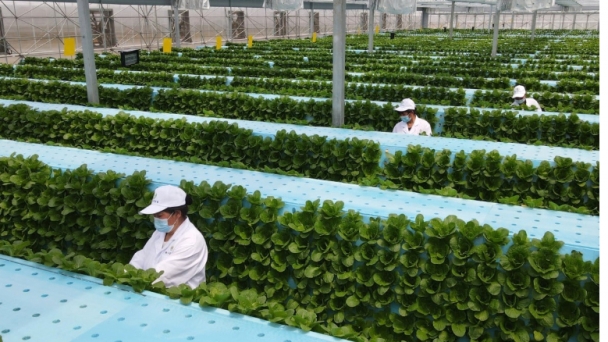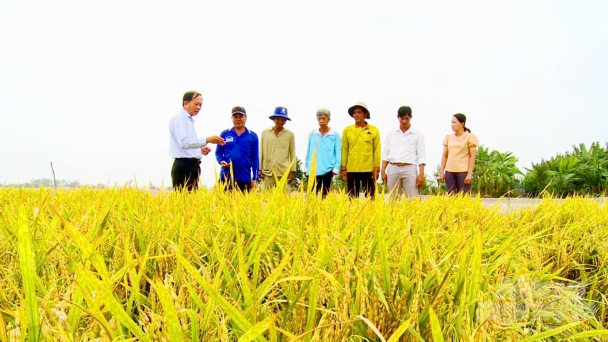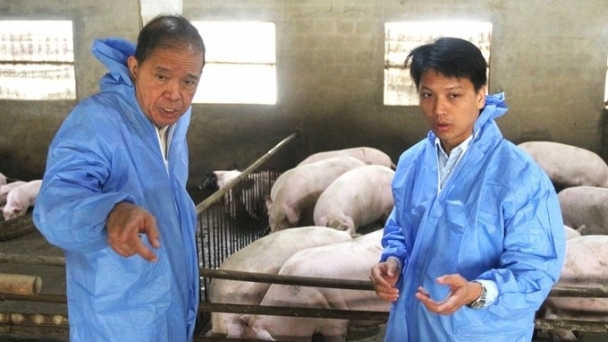December 20, 2024 | 12:42 GMT +7
December 20, 2024 | 12:42 GMT +7
Hotline: 0913.378.918
December 20, 2024 | 12:42 GMT +7
Hotline: 0913.378.918
Agricultural technology company Cibus, Inc., and Biographica, a leader in artificial intelligence and graph machine learning for gene discovery, on Nov. 19 announced they are joining forces on a pilot project focused on improving disease resistance in rapeseed and canola.
Cibus, a San Diego, California-based company that develops and licenses plant traits to seed companies for royalties, said the partnership leverages Biographica’s proprietary platform to identify and prioritize targets for gene editing, aiming to develop resistance against critical diseases impacting crop health, yield and quality. United Kingdom-based Biographica will utilize its technology to analyze gene targets associated with disease resistance in the two crops and set the stage for future crop improvement strategies.
“This collaboration marks a significant milestone in unlocking the potential of advanced machine learning for agricultural innovation,” said Cecy Price, chief executive officer at Biographica. “Combining Biographica’s unique machine learning trait discovery platform with Cibus’ expertise in crop trait development allows us to unlock new insights into disease resistance, paving the way for more resilient crops and sustainable agricultural practices.”
Tony Moran, senior vice president for International Development at Cibus, added: “We are excited to work alongside Biographica to identify impactful gene targets, enabling the development of crop varieties that can withstand disease pressure in the field with benefits for farmers, the environment, and food security.”
Dr. Greg Gocal, executive vice president and chief scientific officer at Cibus, said the company has made plant disease resistance an important pillar of its work.
“This is a critically important need in farming,” Gocal said. “Developing durable disease resistance in plants will require identifying multiple modes of action. This partnership with Biographica is an important extension of our work in building our inventory of gene targets associated with developing different modes of action for this important trait.”
Rapeseed and canola are susceptible to several diseases, including clubroot, Sclerotinia stem rot and Verticillium stripe.
(WG)

(VAN) China has reduced fertiliser use for eight consecutive years since 2015 and yet the country's agricultural output has steadily increased with 2024 grain production hitting a historic high.

(VAN) Equatic is among a wave of start-ups exploring how the ocean could be harnessed to capture and store carbon. But not everyone is sure it's such a good idea.

(VAN) An Giang has over 300,000 farmers directly engaged in rice production and 229 cooperatives playing a pivotal role in the implementation of the One Million Hectares of High-Quality Rice Project.
/2024/12/18/1550-3-080744_656.jpg)
(VAN) C.P. Vietnam continues to accompany Dong Thap province to build green embankments to protect land and prevent landslides on river banks in 12 districts and cities.

(VAN) The Quang Tri Department of Agriculture and Rural Development collaborates to pilot the Greenhouse Gas Emission Reduction Project in agriculture.

(VAN) Positive results in mass vaccination against African swine fever in Vietnam will become important evaluation bases for other countries.

(VAN) Ha Long Bay's 30-year journey as a recognized world natural heritage site is reflected through the numerous achievements in promoting its heritage's values.